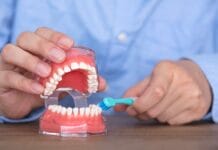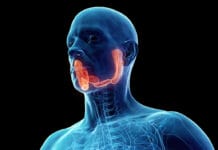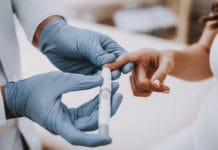We reflect, research, and take action on a daily basis in our clinical dental hygiene operatories. Sometimes the opposite is true of us as well; we deflect, accept, and do nothing. The latter is by far the easier route, but perhaps the most frustrating and least fulfilling. What I would like to focus on is the former, also known as Action Research.
According to Wikipedia, Action Research is described as research initiated to solve an immediate problem, or a reflective process of progressive problem solving led by individuals working with others in teams or as part of a “community of research” to improve the way they address issues and solve problems.1 So what are some possible ways we unknowingly take part in this action research process? I think you will find the multitude of possibilities uplifting. The dental hygiene community has a lot of problem-solving influence on an exponential amount of people and daily issues.
For instance, perhaps you have been seeing “Jane Doe” every three months for ten years, and realize that you could almost copy and paste her clinical notes as they never change. Jane always presents with thick plaque along the mandibular posterior lingual, as well as moderate calculus along the mandibular anterior. Jane states she brushes, flosses, and does everything you have instructed her to do as well as she can; further, she states, that’s what you are there for, to clean her teeth. Now, the definition of insanity is doing the same thing over and over again, and expecting different results. In other words, how can Jane’s oral health ever improve if we do not offer her new choices?
In this case, with Jane’s permission, offer to make some new oral health recommendations to her. If Jane says yes, the ball is in your court! This is a good time to sit Jane up and have a face-to-face Motivational Interview. Have you ever asked about Jane’s diet? Does she consume a lot of sugars, fermentable carbohydrates, or sweetened coffee? If the answer is yes, then you most likely have the reason as to why she forms such extreme amounts of plaque and calculus in a short time. Her high sugar diet is a food source for the plaque biofilm. Perhaps she could benefit from dry brushing and regular xylitol exposure. Sometimes the simplest change makes a world of difference in someone’s oral health.
The results will come when Jane returns and either, a) Jane has considerable improvement in her oral hygiene, b) Jane has no changes as she didn’t or couldn’t follow your recommendations, or c) Jane followed instructions, but no significant changes were noted. To help Jane stay on course, it might be helpful to call or text her a few weeks after her dental appointment to see how she is doing with her new routine. We all could use a little motivational coaching from time to time.
How many of your patients are still die-hard smokers who have been unsuccessful with their smoking cessation attempts? Nicotine binds to brain receptors making cessation quite difficult.2 I personally have had some success (minimal as it may be, I still consider it a success) helping patients quit or lessen smoking. I suggest The 4 Ds: Delay, Do Something Else, Deep Breathe, De-Catastrophize, and additionally, Drink Water 3 (yes that is actually 5 Ds).
By focusing on the Delay, and Do Something Else part of The 4 Ds allows the smoker the time and self-thought to control his/her nicotine intake. In this case, I suggest chewing xylitol gum when the urge to smoke hits. This also benefits the patient’s oral health. Chewing xylitol gum in place of smoking a cigarette may reduce the number of cigarettes smoked per day to a level that allows them to quit on their own. I have had a handful of success stories and am encouraged enough to keep offering this simple alternative as an adjunct to the usual methods of smoking cessation.
What I hope you take from this, is the fact that we have so many opportunities for Action Research in our daily life as dental hygienists. When you see your next patient, take time to reflect, research, and take action to discover new ways or systems that may improve upon his/her health or lifestyle.
Life is full of REFLECTION. We reflect when we pray. We reflect when something doesn’t go right at home or at work, as well as when things do go right. We reflect when someone doesn’t respond to our treatments or recommendations as we may have thought they would. Reflection, however, is very little without the ACTION required to make a change, or share our progress with others.
Why is this article labeled “The Dental Hygiene Revolution?” The answer is simple. We are revolting and evolving away from sheep mentality. We are empowered to learn on our own and take part in our own Action Research! This is the true research that we all do on a daily basis. It is not blind institutional research, but daily, living, breathing, evolving research. When we open our mind and reflect on each and every patient, it helps determine what the best course of action is for their individual dental and overall health.
We need to be open to new ideas to solve old problems. Track the Action Research (new suggestions you have made to your patient) in your patient’s chart via clinical notes; soon you will know what works, what doesn’t work, or what may work for your individual patient’s needs. Remember to share your successes and failures with your co-workers so they can modify and extend on that body of knowledge. You may be surprised to find that Action Research helps with personal relationships as well!
References
- T., Stringer, E. Action research. (Fourth ed.). Thousand Oaks, California. ISBN9781452205083. OCLC 842322985. Retrieved from https://en.wikipedia.org/wiki/Action_research
- Xiu, X., Puskar, N.L., Shanata, J.A., Lester, H.A., Dougherty, D.A. Nicotine binding to brain receptors requires a strong cation-pi interaction. Nature. 2009;458(7237):534-7. Retrieved from https://www.ncbi.nlm.nih.gov/pmc/articles/PMC2755585/
- Lee, J. The Four Ds – A simple relapse prevention strategy. Choose Help. 2013. Retrieved from https://www.choosehelp.com/topics/addiction-treatment/learn-the-four-ds-2013-a-simple-relapse-prevention-strategy












